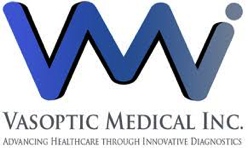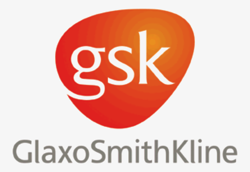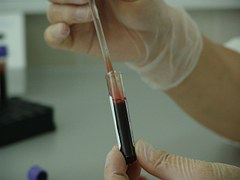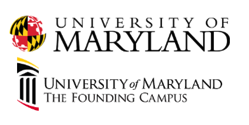
You thought the Shark Tank was tough... wait until you enter the the first annual Maryland Crab Trap!
Submit your application to our business plan competition for a chance to be named the company with the most commercial potential at the Regional Biotech Forum and have the opportunity to win $10,000 and an incubation space! Pitch your idea to industry experts on April 19th and 5 Finalists will have the chance to win the Grand Prize. This competition will be focused on companies in the following sectors: Therapeutics, Diagnostics, Medical Devices, Healthcare Services, E-Health, Mobile Health, Electronic Medical Records, Health Informatics, and BioHealth Cyber Security.
Companies will be scored on: Product, Technical Feasibility, Marketing/Strategy, and Leadership team.
Deadline for entries is March 18th - Finalists will be announced by April 4th -Regional Biotech Forum Event: Panel Presentation is on April 18th
Apply here: crabtrap.regionalbiotechforum.com

Corvidia Therapeutics, a biotechnology company focused on the development of precision cardiovascular therapies, announced today that it has raised $26 million in a Series A financing, co-led by seed-investor Sofinnova Partners, and Apple Tree Partners.
Concurrent with the financing, Corvidia has licensed a clinical stage compound from AstraZeneca to develop and commercialize as its lead therapeutic (COR-001). Funds from the Series A financing will be used to progress COR-001 into Phase I/II clinical trials during 2016, as well as to advance the company's preclinical pipeline.

A cancer immunotherapy drug under development at Gaithersburg-based MedImmune Inc. received "breakthrough" status from the Food and Drug Administration for its use in patients with metastatic bladder cancer. MedImmune, the research and development arm for AstraZeneca (NYSE: AZN), has multiple clinical trials in its pipeline for the drug candidate durvalumab, or MEDI4736, to treat non-small cell lung cancer, as well as head and neck, bladder, gastric, pancreatic, liver and blood cancers. The drug candidate inhibits what's known as a programmed death-ligand, or PD-L1 protein, which cancer uses to suppress the immune system.

WorkSource Montgomery, Inc., the workforce development resource for Montgomery County businesses and jobseekers, is proud to announce Dr. Ellie Giles as its new Chief Executive Officer. She will begin her new role March 21.
Giles will lead the non-profit WorkSource Montgomery, Inc. in collaboration with its board and work with the recently seated Workforce Development Board to promote job training and placement for the County’s workforce and meet the needs of County employers. Together, the two boards will direct a robust system of talent development aligned to the future and current economic development priorities for the County.

Biohealth is all over the map in Maryland. There’s the biotech corridor in Montgomery County, where companies like MedImmune LLC and Emergent BioSolutions Inc. call home. The students and academic researchers at Johns Hopkins and University of Maryland are up in Baltimore. Then there are the government agencies and their many, many contractors spread throughout the Baltimore-Washington region.

After raising a seed round, building a team of 14 people in its Canton office and conducting a pair of pilots, Protenus is ready to build a real sales team in 2016.
“Ultimately, we know that selling is hugely time-consuming, it’s hugely specialized, and it’s something that we really wanted to invest in, along with our marketing side,” said cofounder Robert Lord, who’s been handling sales with his fellow cofounders.

The Abell Foundation made its second investment in a year in Vasoptic Medical.
Just like last summer, the nonprofit invested $250,000 in the medical device startup.
“Expanding our investment in Vasoptic Medical Inc. is a win-win for Baltimore,” said a joint statement released by the Abell Foundation board. “Vasoptic is growing Baltimore’s innovative tech industry and is poised to improve access to affordable healthcare for low-income populations.”

Applications for the Maryland Technology Development Corporation's (TEDCO) Life Science Investment Fund are being accepted now through April 15.
The Life Science Investment Fund (LSIF) was previously managed by the former Department of Business and Economic Development under the name Biotechnology Commercialization Award. It was one of the programs that was transferred to TEDCO on October 1, 2015 along with Maryland Venture Fund, following the enactment of legislation passed during the 2015 General Assembly. This legislation was initiated by the Augustine Commission in an attempt to consolidate the State's efforts to provide seed/early-stage business investment.

GlaxoSmithKline (NYSE: GSK) acquired the HIV portfolio from Bristol-Myers Squibb (NYSE: BMY). Both sides announced the preliminary deal in December. GSK pays $350 million up front and could pay an additional $1 billion depending on developmental and sales milestones.

Venture capital organization NextGen Venture Partners is launching a Baltimore office with the goal of bringing more investors to Baltimore and doing more deals in the city.
NextGen Venture Partners is a national network of early-stage investors that taps into cities’ entrepreneurship communities to draw out new investors. The organization has hubs in five cities and is launching in three more, including Baltimore.

Wednesday, March 9, 2016 from 3:30 PM to 5:00 PM (EST)
Montgomery County Department of Economic Development - 111 Rockville Pike Suite 800 Rockville, MD 20850
The National Oceanic and Atmospheric Administration (NOAA) is based on Silver Spring, MD, but is served by laboratories and science centers across the country. From severe weather and climate to ocean and coastal sciences, NOAA's work is extremely varied and offers a number of opportunities for MD companies. This presentation from NOAA's Technology Partnerships Office will provide an overview of NOAA's science activities, as well as ways private sector companies can work with NOAA.

Opdivo from Bristol-Myers Squibb ($BMY) followed Merck's ($MRK) Keytruda onto the market, but the immuno-oncology drug quickly overtook its rival and has never looked back. It just today won recommendations in Europe for two more indications. But while it leads the race, analysts say there are still opportunities for Keytruda and drug candidates from others to close the gap in a market that is projected to reach $40 billion in annual sales.

Fast Company magazine recently named the Johns Hopkins Applied Physics Laboratory as one of the world's most innovative companies of 2016 for building the bionic man, one arm at a time.
The publication highlighted APL's DARPA-funded Revolutionizing Prosthetics program and specifically recognized its breakthrough Modular Prosthetic Limb project, which is the world's first artificial limb controlled by neural impulses.

Business Innovation Network startup Nexercise owners Ben Young and Greg Coleman struck a deal with investor Mark Cuban for $1.5 million in exchange for 10% equity stake in the company and $1.5 million unsold advertising inventory in credit. Their app Sworkit is in the number one position in the Apple store for health and fitness and was a recent featured story on Washington Business Journal's website.

In March and April, entrepreneurs can take a tour of Baltimore-area incubators, and pick up some knowledge on running a startup in the meantime.
Camp Inc. is a six-stop event that’s set to move through Baltimore, Towson, Baltimore County and Columbia.

Inova Health System will launch a $100 million venture fund dedicated to precision medicine. The Falls Church-based health system plans to announce the initiative Thursday as part of an Obama administration event unveiling federal funding and highlighting private-sector commitments in the nascent science.

Recent research suggests that the site of vaccine administration significantly influences the tissue specificity and durability of the resulting immune response. Conventional vaccines delivered by intramuscular injection may therefore be unsuitable for the prevention of diseases with tissue tropisms distinct from the site of administration. Notably, for mucosally-transmitted pathogens such as herpes simplex virus (HSV), the current inability to generate a sustain immune response at the primary site of infection, the genital mucosa, has hindered the development effective preventative vaccines.

Funding and Research Opportunities The following funding opportunity announcements from the NHLBI or other components of the National Institutes of Health, might be of interest:

Biotech company in Princeton plans clinical tests of birth-control patch thanks to state-administered incentive program
If Princeton-based biotechnology firm Agile Therapeutics can eventually get federal approval to bring its promising new female contraceptive patch to market, credit will go to more than just the company’s employees and investors

The TCM Industry Awards Celebration will take place on May 11, 2016 at the Bethesda North Marriott Hotel & Conference Center. This is our 28th year recognizing the high achievers in the regional technology, life science and government contracting industries.
On May 11, the Tech Council will come together with the technology, life science and government contracting communities to celebrate the achievements of the companies and individuals that propelled innovation and made 2015 such a memorable year for our region. Your attendance supports the finalists and the mission of the Tech Council.

A “Wired for Health” study recently reported by The Scripps Translational Science Institute in San Diego poses a significant challenge for those working to realize the potential of digital health technologies.
The Scripps team has been investigating the relationship between wireless health-monitoring technologies, healthcare costs, and outcomes in patients with chronic disease. After equipping one cohort of patients with an iPhone and a connected tracking device, researchers analyzed claims and medical data to track care utilization and outcomes, ultimately finding no significant economic or clinical benefit for the patients being monitored versus a control group.

I have provided capital for many start-up businesses, and raised money for a few of my own. I am often asked for advice on how or whether an entrepreneur should seek venture capital. My initial advice is simple: Don’t.
Entrepreneurs usually start businesses because they need autonomy and independence; they cannot work for someone else. As my granddad used to tell me, “no one gives you money for nothing.” That is certainly true for investors. They give entrepreneurs cash because they want to make more cash. They expect to be listened to, or at least have their financial interests regarded as the entrepreneur uses their capital to grow his or her business. Boom. Just like that — by taking outside capital — the entrepreneur sacrifices autonomy.

University System of Maryland (USM) Chancellor Robert Caret’s schedule Monday showed a full day of meeting, greeting, and listening on the University of Maryland, Baltimore (UMB) campus. In the morning, UMB’s deans and vice presidents shared accomplishments and talked about their goals for each of the university’s seven schools. For lunch it was a special edition of UMB President Jay A. Perman, MD’s regular brown bag affair, with attendees unaware of their star guest until he walked through the door! Later, student leaders had a chance to question Caret and express their interests and concerns.

A renewed push by state lawmakers to combine the flagship University of Maryland, College Park with the health- and law-focused University of Maryland, Baltimore could give the state a dual-campus powerhouse that would leverage the strengths of both institutions to launch new programs, discoveries, and businesses, supporters say.
Legislation sponsored by Sen. Bill Ferguson and Del. Curt Anderson and backed by Senate President Thomas V. Mike Miller would move the 80-employee headquarters of the state university system from Adelphi to Baltimore and establish a ventures office to help faculty and students market their inventions commercially.

Physicians and biomedical engineers from Johns Hopkins report what they believe is the first successful effort to wiggle fingers individually and independently of each other using a mind-controlled artificial “arm” to control the movement.
The proof-of-concept feat, described online this week in the Journal of Neural Engineering, represents a potential advance in technologies to restore refined hand function to those who have lost arms to injury or disease, the researchers say. The young man on whom the experiment was performed was not missing an arm or hand, but he was outfitted with a device that essentially took advantage of a brain-mapping procedure to bypass control of his own arm and hand.

The grand vision of Walt Disney -- one of the most innovative entrepreneurs of all time -- was simply to make people happy.
Walt further believed that if you can dream it, you can do it. While the priorities and technologies have changed, it was Walt's original vision that led to Disney's greatest innovations. Think about them: from Snow White and the Seven Dwarfs, the world's first full-length animation feature (1937), to Tiki Room opening and introducing the first electro-mechanical robots (1963), to modern Disney stores adopting Apple Pay.

Rani Therapeutics, headquartered in San Jose, Calif., announced it had closed on its latest funding round, now totaling more than $70 million. Existing investors included Novartis (NVS), Google Ventures, Buttonwood, GF Ventures, KPC Pharmaceuticals, inCube Ventures and VentureHealth. New investors include AstraZeneca (AZN), Virtus Inspire Ventures, and Ping An Ventures. Rani focuses on a development platform to allow biologic drugs that are typically injected to be taken orally. Drugs that fall into this category include TNF-alpha inhibitors, interleukin antibodies, basal insulin and GLP-1.

Health Datapalooza is a national conference focused on liberating health data, and bringing together the companies, startups, academics, government agencies, and individuals with the newest and most innovative and effective uses of health data to improve patient outcomes.

China will develop traditional Chinese medicine (TCM) into a pillar industry, according to a blueprint released by the State Council, China's Cabinet, on Friday.
The plan proposes universal access to TCM care by 2020. By 2030, TCM should make a notably greater contribution to social and economic development.

The week of April 3-9 Paul Singh, a successful entrepreneur and seed-stage investor, will visit Los Alamos, Taos, Santa Fe and Albuquerque to deliver a week-long series of events for aspiring entrepreneurs and community members.